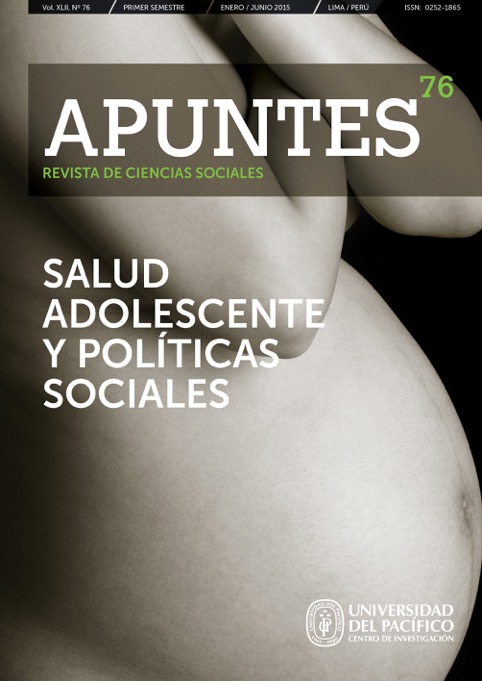What is the Relationship between Cognitive and Non-Cognitive Skills and the Adoption of Risk Behavior in Peru?
DOI:
https://doi.org/10.21678/apuntes.76.729Keywords:
adolescents, skills, risk behavior, intelligence, self-esteem, PeruAbstract
For many years, research has dealt with the relationship between the adoption of risk behaviors by teenagers and factors related to the family or the environment, ignoring other factors such as teenagers’ own cognitive or non-cognitive skills. This study seeks to demonstrate the relationship between these two variables and ascertain whether adolescents’ cognitive and non-cognitive skills are negatively associated with the consumption of tobacco and alcohol and the early initiation of sexual activity. The investigation used Peru’s Young Lives database and employed two estimation methods: fixed effects and instrumental variables. The results show that the relationship between risk behaviors and cognitive and non-cognitive skills is negative. That is, adolescents with higher levels of intelligence, self-esteem, and self-efficacy are less likely to engage in risky behaviors.
Downloads
Downloads
Published
How to Cite
Issue
Section
License
Apuntes publishes all its articles and reviews under a Creative Commons Attribution (CC BY 4.0) license with the objective of promoting academic exchange worldwide. Therefore, articles and book reviews can be distributed, edited, amended, etc., as the author sees fit. The only condition is that the name of the author(s) and Apuntes. Revista de Ciencias Sociales (as the publisher) be cited.



.jpg)
